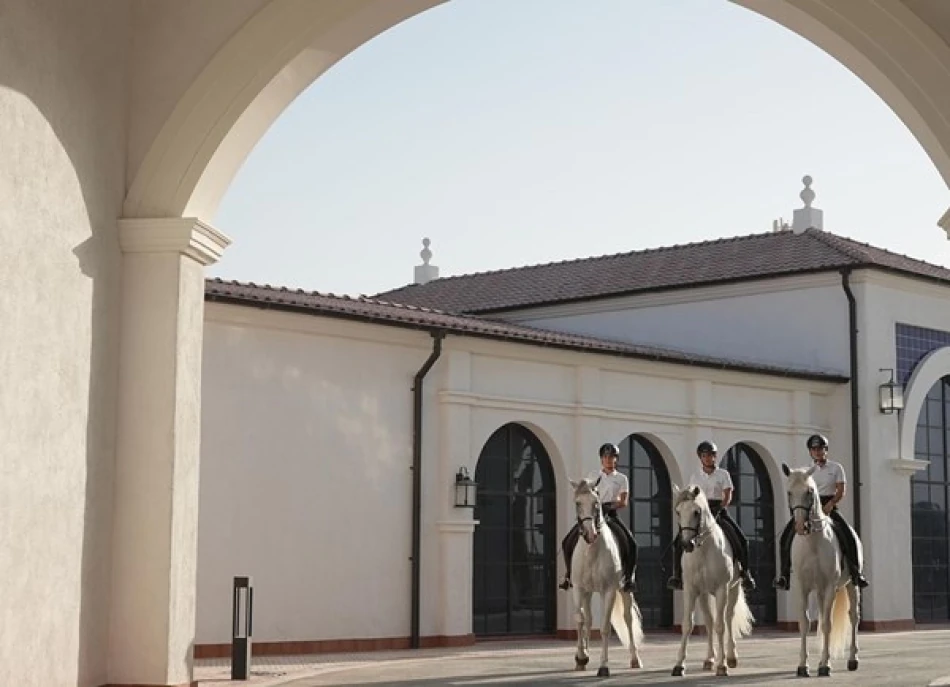
Abu Dhabi's Princely Equestrian Arts School to Open Next November under Mansour bin Zayed's Guidance
Abu Dhabi is opening the world's fifth classical equestrian arts school this November, joining an elite group that includes institutions in Austria, Spain, Portugal, and France. The Abu Dhabi Royal Equestrian Arts School will span 65,000 square meters on Al Jubail Island, marking a significant investment in preserving and advancing classical horsemanship traditions.
The school opens under the direction of Sheikh Mansour bin Zayed Al Nahyan, UAE Vice President and Deputy Prime Minister. This places the UAE alongside European nations that have maintained classical equestrian traditions for centuries.
The facility includes 60 air-conditioned stables with advanced monitoring systems, a veterinary clinic, training grounds, and shaded pathways for horses and riders. A climate-controlled performance hall seats 1,200 people, suggesting the school will host major international events.
But this isn't just about riding. The school houses what organizers say will be one of the world's largest equestrian libraries, containing over 10,000 books. An equestrian museum displays rare artifacts documenting horsemanship across different civilizations and centuries.
The school also includes the UAE's first saddle-making workshop, aimed at reviving traditional craftsmanship. This reflects a broader effort to blend historical practices with modern facilities and training methods.
Programs range from youth academies to a comprehensive four-year equestrian program. The school specifically includes children with disabilities, creating pathways for different age groups and abilities to engage with classical horsemanship.
For the equestrian world, this represents significant Middle Eastern investment in classical riding disciplines that have traditionally been European-dominated. The scale and scope suggest Abu Dhabi aims to become a major hub for international equestrian education and competition.
The timing aligns with growing interest in equestrian sports across the Gulf region, where horse culture has deep historical roots but modern competitive infrastructure has been limited. The school could attract international students and trainers, potentially shifting some focus in the global equestrian education landscape toward the Middle East.
Most Viewed News

 Layla Al Mansoori
Layla Al Mansoori






